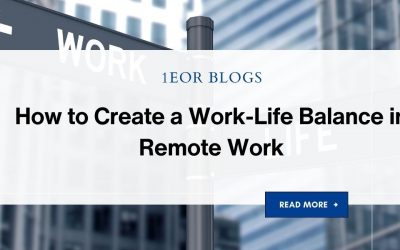When it comes to managing a business, there’s one critical aspect that directly affects the emotional and professional well-being of your workforce—payroll. While the operational processes of calculating hours and taxes are technical, the emotional weight of receiving a salary on time is deeply personal for every employee. Delays in payroll not only damage trust but also deeply erode morale, motivation, and workplace engagement.
The Impact of Payroll Delays on Employee Morale is not just a logistical issue—it’s a serious business risk that influences everything from employee retention to brand reputation. Whether you’re a startup or a large corporation, ensuring timely payments should be non-negotiable. Interestingly, modern employer-of-record solutions like 1eor have emerged as a benchmark in preventing payroll disruptions, showcasing how tech-driven systems can solve this long-standing problem.
Let’s explore in detail how payroll delays influence employee emotions, productivity, and the overall culture of your organization.
The Psychological Toll: Emotional Instability and Stress Among Employees
Payroll delays are not just administrative hiccups—they trigger real emotional distress in the lives of employees. Many professionals budget their lives around a predictable pay cycle. Rent, groceries, school fees, and other monthly commitments rely on that regular deposit hitting their account. When payments are delayed, the emotional domino effect begins.
First, there’s anxiety. Employees begin to worry about covering basic expenses. This stress then manifests in the workplace as irritability, absenteeism, or complete disengagement. The uncertainty can also trigger a loss of trust in the management team, especially if payroll delays become frequent. Over time, employees may even develop a sense of betrayal, wondering if the company is hiding deeper financial problems. Explore how 1eor’s Employer of Record services streamline payroll management and mitigate risks of delays.
Here’s how payroll delays emotionally affect employees:
- Increased anxiety and mental fatigue
- Lack of motivation to perform daily tasks
- Loss of trust in leadership and HR
- Fear of financial instability
In a study conducted on workforce satisfaction, over 60% of respondents claimed that irregular salaries made them feel less valued by their employers. The same study noted that even high salaries can’t compensate for delayed payments, highlighting how predictability is more important than magnitude.
Decreased Productivity and Work Engagement
Beyond the emotional burden, The Impact of Payroll Delays on Employee Morale directly affects productivity levels. When workers are preoccupied with financial stress, their ability to focus plummets. Even top-performing employees start to show signs of burnout, not because they are incapable, but because they feel unappreciated and insecure. Learn more about how 1eor’s global payroll solutions guarantee timely, compliant, and efficient payroll processing.
Delayed payroll sends a subtle but powerful message: “You’re not a priority.” This perception chips away at the enthusiasm to go the extra mile. Projects are delayed, creativity dips, and team collaboration suffers. For employees, why invest emotionally in a company that doesn’t respect their time and effort?
Effects on Work Performance:
| Consequence | Description |
| Reduced Focus | Employees worry more about personal finances than projects |
| Low Engagement | Diminished participation in team meetings and strategy |
| Increased Errors | Mental fatigue leads to careless mistakes |
| Higher Turnover Intention | Employees start job hunting after repeated delays |
It’s important to remember that once employee morale drops, it’s hard to rebuild. A simple “We’ll fix it next month” from leadership doesn’t undo the damage. That’s why leading companies use advanced payroll systems or EOR services like 1eor to automate and safeguard timely salary disbursement.
Impact on Company Culture and Employer Branding
Company culture is not just about team-building activities or remote work flexibility—it’s also shaped by how well the organization respects its commitments. And salary is the most fundamental of all commitments. When payroll is delayed, it signals organizational dysfunction, and that spreads like wildfire among teams.
The Impact of Payroll Delays on Employee Morale extends beyond just individuals; it creates a toxic ripple through departments. Morale drops collectively, watercooler talk turns negative, and internal trust begins to erode. Over time, the company’s external brand also starts to suffer. Glassdoor reviews reflect employee dissatisfaction, which scares away top talent. Even clients and partners may take note, viewing payroll problems as a red flag for broader financial instability. Implementing HR tools for better management can support payroll efficiency and overall employee satisfaction.
Key consequences include:
- Damaged internal culture due to ongoing frustration
- Increased gossip and negativity among staff
- Lower referrals and word-of-mouth hiring
- Negative online reviews impacting recruitment
In today’s digital age, word travels fast. Companies that delay payments often develop a reputation for instability, regardless of how strong their products or services may be. Employers must understand that people are their greatest asset—and respecting payroll timelines is one way to prove that.
Legal and Ethical Ramifications of Payroll Delays
In addition to cultural and emotional effects, payroll delays carry legal implications that can cost businesses heavily. Depending on your region, failure to pay employees on time may result in penalties, lawsuits, or even criminal charges. Countries with strict labor laws view payroll delays as a violation of worker rights.
Delayed payments also raise ethical questions. Are you withholding funds for operational convenience? Are you transparent with your employees about the reason for the delay? Lack of communication can deepen resentment and make the situation worse. Explore how global RPO solutions can complement your payroll processes by streamlining recruitment and employee management across borders.
Ethical businesses take proactive steps to ensure transparency:
- Communicate clearly if a delay is anticipated.
- Offer interim support like partial payments or advances.
- Deploy modern payroll tech to reduce risk of errors.
This is where a system like 1eor plays a crucial role. Their streamlined processes and global payroll compliance ensure that businesses remain on the right side of labor law—both morally and legally.
The Cost of High Employee Turnover: Recruiting and Retention Challenges
One of the most severe consequences of payroll delays is the impact on employee retention. It’s a well-known fact that high turnover rates are costly for businesses. Hiring new talent, training them, and integrating them into the team all require time and resources. When employees leave due to unresolved payroll issues, companies are not only facing immediate morale challenges but also a long-term financial burden.
Employees who experience payroll delays are likely to seek more stable opportunities elsewhere. The impact on employee morale is often the tipping point for many workers, especially in highly competitive industries. It’s not just about the paycheck itself; it’s about trust, respect, and the fundamental belief that the organization values their contribution. Effective recruitment through recruitment process outsourcing can ensure a smooth workforce integration and help prevent further payroll disruptions.
Impact of Turnover:
- Increased hiring costs: Recruitment, interviews, onboarding.
- Loss of productivity: Training new employees takes time, and existing employees may have to pick up extra work during the transition.
- Weakened team morale: When teams lose members frequently, it can lead to frustration and reduced collaboration.
Employees who stay after payroll delays often carry lingering dissatisfaction. This can create a vicious cycle where a company struggles to keep skilled workers, and the environment becomes less attractive to new candidates. Without proper pay systems in place, employee loyalty can easily fade.
By using modern payroll systems like 1eor, companies can prevent the loss of talent, reduce turnover costs, and build a more loyal, engaged workforce.
How Payroll Automation and Advanced Solutions Can Help
The good news is that payroll delays are entirely preventable. The emergence of automated payroll systems and Employer of Record (EOR) services like 1eor has revolutionized how businesses manage payroll. These tools provide a seamless, efficient, and error-free payroll processing experience, ensuring that employees receive their salaries on time, every time.
Payroll automation reduces human error, eliminates bottlenecks, and ensures compliance with ever-changing tax laws. For businesses with a global workforce, solutions like 1eor manage payroll across multiple regions, taking into account local labor laws, tax regulations, and payment schedules. This ensures accurate and timely disbursement of wages, significantly reducing the risk of delays.
Additionally, these systems offer features such as:
- Real-time tracking of payroll progress to ensure on-time payments.
- Automated calculations of taxes, benefits, and deductions to avoid errors.
- Customizable reporting to enhance visibility into payroll processing.
By switching to automated payroll solutions, companies can eliminate the primary cause of payroll delays—human error—while enhancing the overall experience for employees.
Building a Culture of Trust and Respect with Timely Payroll
At the heart of employee morale lies trust. Payroll is not just a financial transaction—it’s a symbol of the relationship between the employer and the employee. When payroll delays occur, trust is compromised, leading to negative emotions, lower morale, and eventually, employee disengagement.
To foster a workplace culture of trust, businesses must prioritize payroll reliability. Ensuring that employees are paid on time is a fundamental sign of respect. By incorporating solutions such as 1eor for accurate and automated payroll management, companies can avoid the destructive impact of payroll delays on employee morale. Furthermore, employers should also:
- Communicate transparently: If a delay is inevitable, inform employees as soon as possible and provide a clear timeline for when payments will be made.
- Apologize sincerely: Acknowledge the delay and take responsibility. Employees are more likely to forgive a delay if they feel their concerns are heard and addressed.
- Compensate for inconvenience: Offering something of value (like bonuses or extra leave) can help mitigate the effects of payroll disruptions.
A business that cares about timely payroll will build a reputation of respect. This culture of reliability can increase job satisfaction, reduce turnover, and create a more cohesive work environment.
Conclusion: Prioritizing Payroll to Boost Employee Morale
In conclusion, the impact of payroll delays on employee morale is far-reaching. It’s not just about money—it’s about how employees feel valued, respected, and secure in their roles. Delays can create anxiety, reduce productivity, damage company culture, and increase turnover. As we’ve explored, the consequences of payroll disruptions go beyond the payroll department—they affect the entire organization, its operations, and its reputation.
The solution lies in modern payroll automation and services like 1eor, which offer businesses a chance to avoid these pitfalls and build stronger, more positive relationships with their workforce. By automating payroll processes, ensuring compliance, and prioritizing clear communication, businesses can minimize the risk of delays and provide employees with the consistent, on-time paychecks they deserve. For a seamless, efficient solution to your payroll and workforce needs, discover more about 1eor’s comprehensive services.
Ultimately, investing in effective payroll management isn’t just an operational decision—it’s a strategic investment in employee satisfaction and company success. When employees are paid on time, they feel valued, respected, and motivated to perform their best, benefiting both the individual and the organization as a whole.


